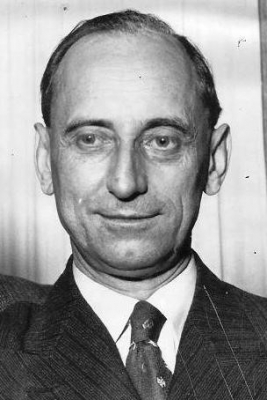9/1(金)
"Homage to Catalonia"George Orwell
「カタロニア讃歌」ジョージ・オーウェル
continuation from last time(aug.30'23)first appearance(jul19'23)(初出)
_
Once the U.S.S.R. had intervened the triumph of the Communist Party was assured. To begin with, gratitude to Russia for the arms and the fact that the Communist Party, especially since the arrival of the international Brigades, looked capable of winning the war, immensely raised the Communist prestige. Secondly the Russian arms were supplied via the Communist Party and the parties allied to them, who saw to it that as few as possible got to their political opponents. 3 Thirdly, by proclaiming a non-revolutionary policy the Communists were able to gather in all those whom the extremists had scared. It was easy, for instance, to rally wealthier peasants against the collectivization policy of the Anarchists,. There was an enormous growth in the membership of the party, and the flux was largely from the middle class - shop-keepers, officials, army officers, well-to-do peasants etc., etc. The war was essentially a triangular struggle. The fight against Franco had to continue, but the simultaneous aim of the Government was to recover such power as remained in the hands of the trade unions. It was done by a series of small moves - a policy of pinpricks, as somebody called it - and on the whole very cleverly. There was no general and obvious counter-revolutionary move, and until May 1937, it was scarcely necessary use to move. The workers could always be brought to heel by an argument that is almost too obvious to need stating: 'Unless you do this, that, and the other we shall lose the war.' In every case needless to say, it appeared that workers had won for themselves in 1936. But the argument could hardly fail, because to lose the war was the last thing that the revolutionary parties wanted; if the war was lost democracy and revolution. Socialism and Anarchism, became meaningless words. The Anarchists, the only revolutionary party that was big enough matter, were obliged to give way on point after point. The process of collectivization was checked, the local committees got rid of, the workers patrols were abolished and the ore-war police forces, largely reinforced and very heavily armed, were restored, and various key industries which had been under the control trade unions were taken over by the Government(the seizure of the Barcelona Telephone Exchange, which led to May fighting, was one incident in this process); finally, most important of all, the workers militias', based on the trade unions, were gradually broken up and redistributed among the new popular army, a 'non-political' on semi-bourgeois lines, with a differentia pay rate, a privileged officer-caste, etc., etc. In the special circumstance was the really decisive step; it happened later in Catalonia than elsewhere because it was there that the revolutionary parties were strongest. Obviously the only guarantee that the workers could have of the retaining their winnings was to keep some of the armed forces under their own control. s usual, the breaking-up of the militias was done in the name of military efficiency; and no one denied that a thorough military re organization was needed.
いったんソ連が介入したとなれば、共産党の勝利はまず確定的だった。まず第一に、武器を貸与してくれたことに対するロシアへの感謝の念と、とくに国際旅団到着以降、共産党こそが戦争を勝利に終わらせることができるようにみえだした事実とが、共産主義者たちの威信を、いやがうえにも高めたのだった。第二に、ロシアの武器は、共産党ならびにそれと同盟している諸政党を通じて提供され、これらの党は、その武器が、できるかぎり、政治上の敵の手に渡らないように配慮した[このためアナーキストが圧倒的多数を占めるアラゴン戦線にロシアの武器がきわめて少なかったのだ。一九三七年の四月までに私が見かけた唯一のロシアの武器は ー ロシア製であったのかどうかはっきりしない数機の飛行機は別として ー ただ一挺の短機関銃(サブ・マシンガン)だけだった]。第三に、共産主義者たちは、非革命的な政策を宣言することによって、過激主義者たちにおびえていたすべての人びとを味方に引き入れることができた。たとえば、比較的裕福な小農たちを結集して、アナーキストの共有政策に反対させるのはたやすいことだった。共産党の党員数はものすごくふくれあがったが、その増加は、おもに中産階級 ー つまり、商店主、公務員、軍人、裕福な小農など ー によるものだった。この戦争は、本質的には三つ巴の戦いだった。フランコとの戦いは続行しなければならないが、同時に政府の狙いは、労働組合の手にある権力を取り戻すことだった。それは、連続的な小さな措置 ー だれかが名づけたのによれば、ちくりちくり政策だが ー によって、全般的にはきわめて巧妙に行なわれた。全面的で、はっきりそれとわかる反革命的な措置は、何ひとつとられなかった。そして、一九三七年五月までは、ほとんど武力を行使する必要もなかった。「これと、それと、もうひとつこれをやらないと、この戦争に負けるぞ」という、あらためて述べる必要もないほどわかりきった議論を持ち出しさえすれば、いつでも労働者たちを引きまわすことができた。いうまでもないが、その軍事上の必要による要請というのが、いつもきまって労働者たちが一九三六年に自らかちとったものを譲り渡すことを意味するようだった。しかしながら、この議論はいつでも神通力をもっていた。というのは、革命諸政党は、何としても戦争に負けたくない、と思っていたからである。もし戦争に負ければ、デモクラシーも革命も、社会主義も、無政府主義(アナーキズム)も、それこそ無意味な言葉になってしまうのだ。無視できないだけの大きさをもつ、たったひとつの革命政党であるアナーキストも、一歩一歩じりじり譲歩しなければならなかった。共有化の進行は食い止められ、地方委員会は廃止され、労働者巡邏隊も廃止された。。そして、戦前の警察力が大幅に再強化され、重武装化されて復活し、一時労働組合の支配下にあった各種の基幹産業も政府によって接収された(五月動乱の原因となったバルセロナ電話交換局の占領はこうした過程の中のひとこまだった)。最後に、もっとも重要なことなのだが、労働組合を基盤とした労働者義勇軍は、徐々に解体されて、新しい人民軍の中へ配置換えとなった。この人民軍は、半(セミ)ブルジョワ路線にのっとるもので、給与率もちがっているし、特権をもつ士官階級やその他いろいろなものもひととおり備わっている「非政治的な」軍隊だった。当時の特殊な状況のもとでは、この措置は、まさに決定的な第一歩だった。ただ、カタロニア地方では、革命政党の勢力がいちばん強かったため、これの実施がほかの地方より遅かった。自分たちの獲得したものを保有するために、労働者が持つことのできるただひとつの保証の手段は、といえば、それは、あきらかに、いくらかの軍隊を自分の支配下に置く、ということだけだった。例によって、義勇軍の解体は、軍事的能力の向上という名目で行なわれた。そして、徹底的な軍の再編成が必要であることを否定するものはひとりもいなかった。


